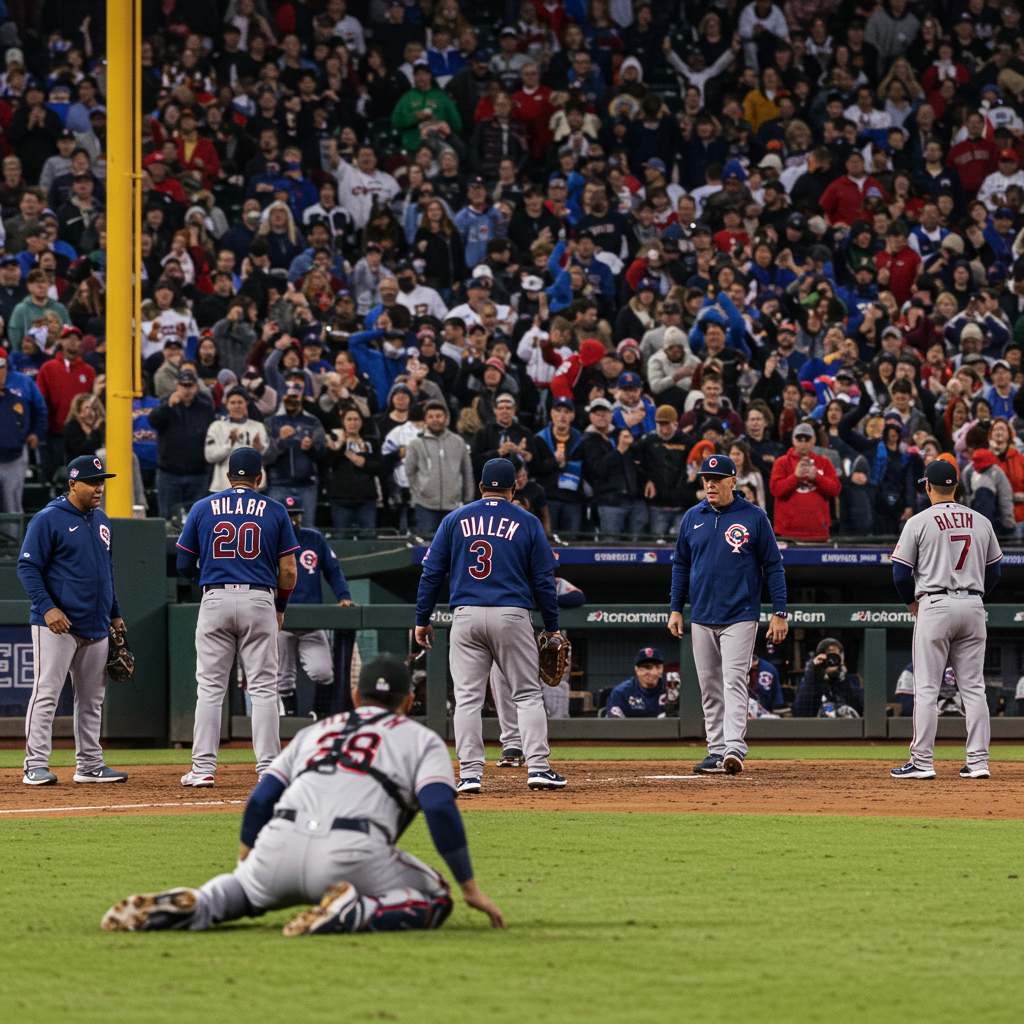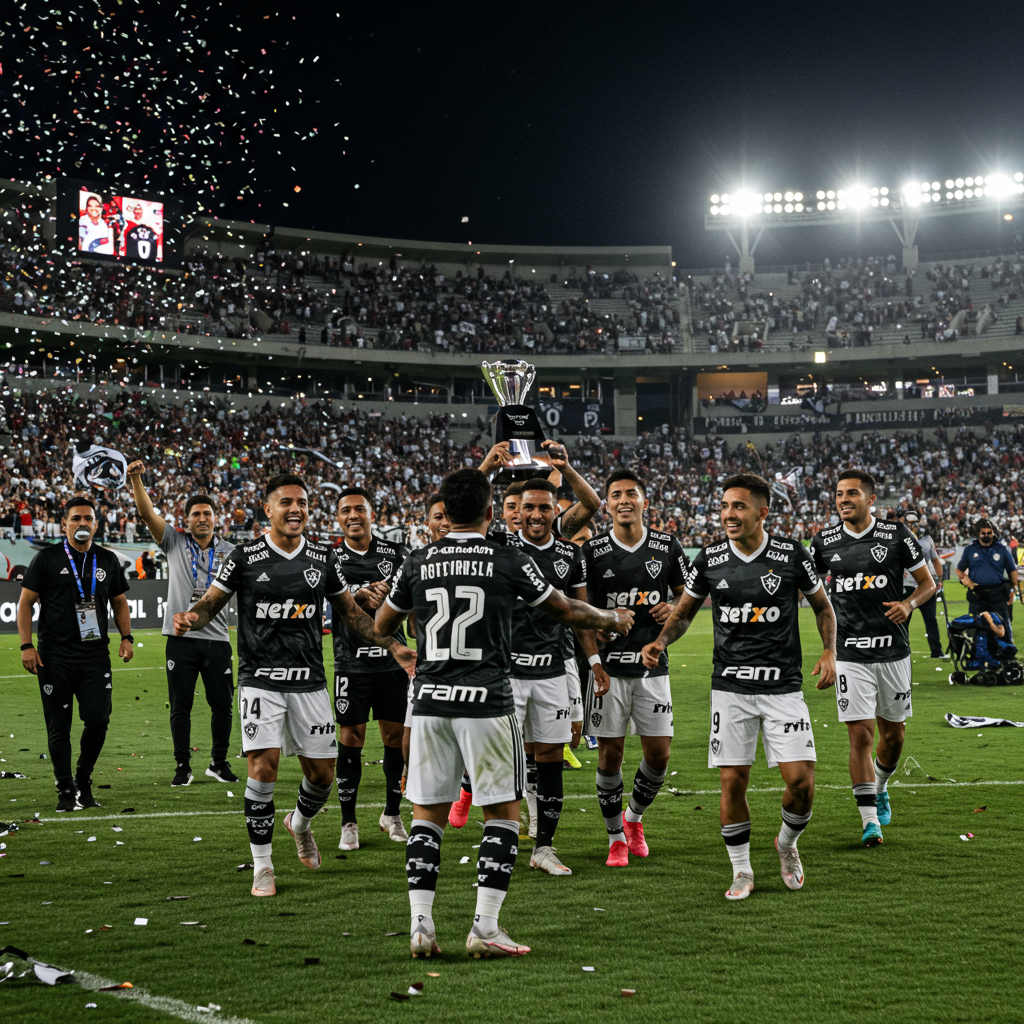The crescendo of an entire baseball season arrives with a single, defining clash: Game 7 of the World Series. This ultimate sporting event transcends mere competition. It transforms into a maelstrom of raw emotion, strategic gambles, and unpredictable outcomes. For fans and players alike, a World Series Game 7 is not just a baseball game. It’s an unparalleled spectacle where legends are born and dreams are either realized or shattered in agonizing fashion. Every pitch, every swing, and every managerial decision carries the immense weight of history. This culminates in a winner-take-all showdown that grips the entire sporting world.
The Unrivaled Intensity of Game 7
Few sporting events can rival the sheer, unadulterated intensity of a World Series Game 7. It embodies pure entropy, a beautiful chaos where the usual rules of engagement seem to fray and unravel. Unlike other sports, baseball’s inherent structure allows for infinite permutations. This makes a decisive Game 7 a particularly volatile concoction. Managers typically adhere to meticulously planned strategies throughout the season. However, in this ultimate do-or-die scenario, normal baseball logic is often abandoned.
Every player becomes an “out-getting cog.” Potential heroes can emerge from any spot in the lineup or even from the bench. The game’s delicate balance means a single misstep or a moment of brilliance can irrevocably alter the course of the championship.
Baseball’s Unique Do-or-Die Dynamics
Baseball’s format lends itself uniquely to Game 7 drama. Consider other major sports. In an NBA Game 7, star players still dominate the ball. Core offensive and defensive schemes remain largely intact. NHL Game 7s might see slightly extended shifts for top lines. Yet, the fundamental play doesn’t drastically shift. Even the Super Bowl, while a single-game championship, largely sees teams stick to their established playbooks.
Baseball is different. The potential for the game to be lost on any pitch forces managers to operate with a relentless urgency. This urgency borders on what might seem like folly in any other context. Bullpens are emptied. Pinch-hitters are deployed strategically. Starters are even used in relief roles. This makes the World Series Game 7 a truly distinct challenge. It is the definitive test of nerve, strategy, and self-determination.
Managerial Decisions Under Immense Pressure
The pressure cooker of a World Series Game 7 weighs most heavily on the managers. Their every choice is scrutinized. Their legacy could be defined by a single decision. Dodgers manager Dave Roberts knows this crucible intimately. He managed Game 7 of the 2017 World Series. That experience still leaves a profound mark. His team, the Los Angeles Dodgers, found themselves trailing 2-0 after just eleven pitches. They eventually lost to the Houston Astros.
That painful night taught Roberts a crucial lesson. In Game 7, a manager must adapt to the game as it unfolds. This means making uncomfortable choices with unflappable resolve. Whether it’s a critical pitching change or a bold pinch-running decision, flexibility and foresight are paramount.
Lessons from Past Game 7s: Roberts and Schneider’s Stories
This time, Roberts faces another formidable challenge with the Dodgers. They are vying for their second consecutive title. He acknowledges the excitement, stating, “It’s gonna be so much fun, dude.” His counterpart, Blue Jays manager John Schneider, shares this anticipation. He recently navigated his team through a Game 7 victory in the American League Championship Series against the Seattle Mariners.
Schneider witnessed firsthand how adhering to a “standard script” can backfire. The Mariners’ decision to hold back their closer, Andrés Muñoz, allowed the Blue Jays to seize control of the game with a single swing. This experience undoubtedly informs Schneider’s approach to this World Series Game 7. He understands the need to “fire any available bullets” while also trying to “stay normal” and avoid being “too trigger-happy.” It’s a delicate balance between proactive aggression and calculated patience.
The Pitching Duel: Ohtani vs. Scherzer
At the heart of any World Series Game 7 lies the pitching matchup. This year’s duel is nothing short of legendary. The Los Angeles Dodgers are set to start Shohei Ohtani. He is arguably the greatest talent baseball has ever seen. He will pitch on just three days’ rest. This marks only the second time in his career he has pitched on such short turnaround. This makes his arm’s response the game’s biggest X-factor. Ohtani’s presence on the mound elevates the stakes even further. It promises an electrifying performance from a player capable of both dominating with his arm and devastating with his bat.
Max Scherzer: A Veteran’s Last Stand
Opposing Ohtani for the Toronto Blue Jays is the 41-year-old future Hall of Famer, Max Scherzer. Scherzer (Blue Jays #31, RHP, 6’3″, 208 lbs) brings a wealth of experience to this high-pressure situation. He started Game 7 in 2019. While his arsenal might not possess the raw velocity of his prime, his “know-how” and competitive fire remain undiminished.
Recent performances show a varied picture for Scherzer. In his most recent outing, he pitched 5.0 innings, allowing 10 hits and 4 earned runs. However, against the Dodgers earlier in the series, he delivered a more solid 6.0 innings, giving up just 6 hits and 2 earned runs. His career statistics are staggering: 2963.0 innings pitched, 3547 strikeouts. These numbers highlight a pitcher who has consistently performed at the highest level.
Schneider confirmed Scherzer will be “policed by the baserunner.” This means a quick hook is possible. The Blue Jays also have other experienced arms available, including Trey Yesavage, Shane Bieber, and even Kevin Gausman on extreme short rest. This reflects the “all hands on deck” mentality of a World Series Game 7. Scherzer, who reportedly credits his wife for helping him prepare, embodies the veteran presence crucial for such a pivotal contest.
Shohei Ohtani: The Unpredictable Ace
Shohei Ohtani, known for his unprecedented two-way dominance, presents a unique challenge in this scenario. His ability to both pitch and hit with elite skill creates a strategic headache for the opposing manager. While his bat has been a consistent threat, his performance on the mound after limited rest is the central unknown for the Dodgers. Roberts must weigh the risk and reward of extending Ohtani’s leash.
He might potentially turn to other high-caliber arms like Blake Snell, Tyler Glasnow (who recently recorded his first career save in Game 6), or even Roki Sasaki, the starter-turned-closer. The decisions surrounding Ohtani’s usage will be among the most pivotal in determining the outcome of this World Series Game 7.
Unforgettable Moments: Game 7 History
The lore of World Series Game 7 is rich with moments etched forever into baseball history. These are the games where ordinary players become legends. This is where the emotional pendulum swings wildly between ecstasy and agony. From Bill Mazeroski’s championship-clinching walk-off home run in 1960 – the only one in a winner-take-all game – to Luis Gonzalez’s dramatic hit off Mariano Rivera in 2001, Game 7 delivers unparalleled drama.
Legends Forged, Heartbreak Endured
Fans vividly recall Edgar Renteria breaking Cleveland’s heart in 1997. The Cubs ended their 108-year drought in 2016. The 1924 Nationals needed 12 innings to beat the Giants. Jack Morris’s 10-inning gem in 1991 and Madison Bumgarner’s five shutout innings on two days’ rest in 2014 are testaments to individual heroics. Each of these contests underscores the unpredictable nature and enduring legacy of a decisive Game 7. It’s truly “where legends are made,” as Schneider aptly puts it.
The emotional stakes are stratospheric. One team will celebrate a hard-fought championship. The other will face a long, agonizing offseason filled with “what-ifs.” The narrative of the 2025 World Series itself has been a rollercoaster. Toronto’s nine-run inning in Game 1. Yoshinobu Yamamoto’s master classes in Games 2 and 6. The Dodgers’ epic 18-inning Game 3 victory. Rookie Trey Yesavage’s dominant Game 5 performance. All have built to this point. Now, everything culminates in this single, defining contest. Roberts summarizes it perfectly: “It’s chaos.” But it’s a beautiful, glorious, unbeatable chaos that every baseball fan cherishes.
Frequently Asked Questions
What makes Game 7 of the World Series so uniquely intense compared to other sports?
Game 7 of the World Series stands out due to baseball’s inherent “entropy” and its unique strategic demands. Unlike other sports where core strategies often remain consistent, baseball’s decisive game forces managers to abandon normal tactics. Every player can become a key contributor, and a single pitch can alter the outcome, creating unparalleled suspense. The dynamic where a team can lose at any moment pushes managers to make urgent, sometimes unorthodox, decisions with their bullpens and lineups, making it a definitive test of strategic flexibility and nerve that other sports simply can’t replicate in their winner-take-all contests.
Who are the key players and managers to watch in the 2025 World Series Game 7?
The 2025 World Series Game 7 features a captivating pitching duel between the Dodgers’ Shohei Ohtani and the Blue Jays’ Max Scherzer. Ohtani’s performance on three days’ rest is a major unknown, while the 41-year-old Scherzer brings veteran experience, albeit with questions about his stamina. Managers Dave Roberts (Dodgers) and John Schneider (Blue Jays) are also central figures. Both have recent Game 7 experience – Roberts with a loss in 2017, and Schneider with an ALCS victory in 2025 – influencing their high-stakes decision-making under immense pressure. The performance of these key individuals will significantly shape the championship outcome.
How do managers approach strategy differently in a winner-take-all Game 7?
In a World Series Game 7, managers operate with an urgency bordering on “folly” compared to regular-season games. They are compelled to “fire any available bullets,” meaning they’ll utilize every available pitcher, often in unconventional roles (e.g., starters in relief). Pitching changes can be rapid, and pinch-hitters or pinch-runners are deployed strategically to exploit every possible advantage. Managers like Dave Roberts and John Schneider must adapt to the game’s flow, making “uncomfortable choices with unflappable resolve” rather than sticking to a standard script. This proactive, aggressive, yet calculated approach defines Game 7 managerial strategy.
Conclusion: Cherish the Chaos
As the curtain falls on the 2025 baseball season, the World Series Game 7 offers a final, indelible chapter. It is a contest where the weight of expectations meets the thrill of uncertainty. Individual brilliance and collective effort collide for ultimate glory. Cherish this moment. Immerse yourself in the drama, the tactical battles, and the raw human emotion. Because, as the experts agree, when it comes to the pure, unadulterated essence of sports, nothing truly beats Game 7 of the World Series.


